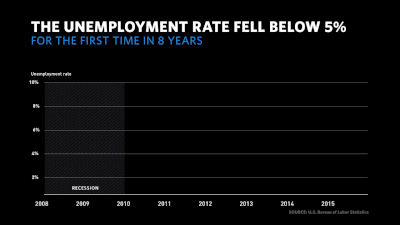United States President Donald Trump’s quest for job creation in the United States has had many twists and turns. President Trump believes that the solution to creating more jobs in the United States is through levying heavy trade tariffs, targeting mostly Chinese made products.
In 2018 alone, Trump has levied tariffs on 10,000+ products from China, Canada, and the European Union. In reciprocation, these countries have levied their own trade tariffs on American goods. While this may help certain industries to create more jobs within the country, there is always the scenario of cause and effect.
What President Trump has failed to realize, is that levying high tariffs on foreign goods does not affect traders but more importantly set the burden onto the American consumers. In order for American consumers to obtain foreign goods, they will have to pay the high tariffs of trade instead of the supplier.
Trade Tariffs Impacts Agrarian Economy
The main industry that is affected by trump’s tariffs is the agriculture industry. This is because all the profits that farmers gain from trade become nullified because of the high tariffs, and this will result in severe losses.
While setting tariffs on agriculture would be a smart thing to do because the industry is solely export-based. It leads the country to be vulnerable from trade tariffs being set by foreign countries. China is the second-largest buyer of agricultural exports from agricultural exports. This means that farmers are particularly affected.
China retaliated by levying 25% duties on US agricultural products, which estimates to around $45 Billion. US producers of soybean, corn, poultry, and beef were affected the most. As a result, farmers and agricultural workers have a hard time making a living in a sector that has always lagged behind historically in the national average of all industries.
Not to mention, poorer areas of the United States will be afflicted much more than others. States like Louisiana, Alabama and South Carolina have per capita incomes much lesser than the national average.
These households face the greatest threat in the export dependant agricultural companies, because of the inability to do business with one of their most important trade partners.
While it is significant that industries like the steel and aluminum stand to benefit from trade tariffs (possibility of gaining 26,000+ jobs), every industry is connected to each other. The high tariffs of steel and aluminum can affect the manufacturing of other products that use steel and aluminum. The dependency of a certain product and an increase in trade tariffs can result in the loss of 400,000 jobs in other industries.
Not only that, automobile companies like Ford or Mercedes Benz/ BMW will also be hit majorly with the trade tariffs being levied. While it may seem like a good idea to prevent the influx of foreign vehicles, these automobile companies have their largest factories situated right in the United States.
Higher tariffs on raw materials like Steel and Aluminium leads to higher production costs for the automobile industry. This in turn would lead to more reliance on machines and a higher number of layoffs of human resources. This would lead to countless jobs being lost and a rising unemployment rate.
Companies Affected by Trade Tariffs
Just this year, the largest nail maker in the US, Mid-Continent Nail had to let go of 60 workers after their sales plunged by 70% after Trump’s implementation of a 25% tariff on steel from Canada and Mexico. Similarly, the Poplar Bluff Company had to raise its prices which led to defection by customers. The company worries of more layoffs and the termination of the entire 500 member workforce by Labor Day.
World-renowned motorcycle company Harley-Davidson aims to shift a portion of its motorcycle manufacturing to outside the US in order to survive the trade war. The Milwaukee based motorcycle company stated in public filing that the move was paramount in preserving its second-biggest sales market after the European marked imposed new tariffs. The company intends to close its plant in Kansas, Missouri, and add jobs to its Pennsylvania facility.
Meanwhile, Tariffs can lead to the cause of 4000 workers becoming unemployed at the Volvo plant in South Carolina. Volvo Cars Chief Executive Hakan Samuellsson told Reuters that trade barriers and restrictions were preventing them from creating as many jobs as they hoped to plan.
Finding Jobs
Now with the trade war deemed to escalate, it would mean the potential decrease in jobs. If you are currently looking for employment, it is advisable to check www.www.unemploymentcalculator.org to see the unemployment benefits you could avail from the city/state you reside in. Also check out the various articles that provide vital information as to getting employed in the United States.

